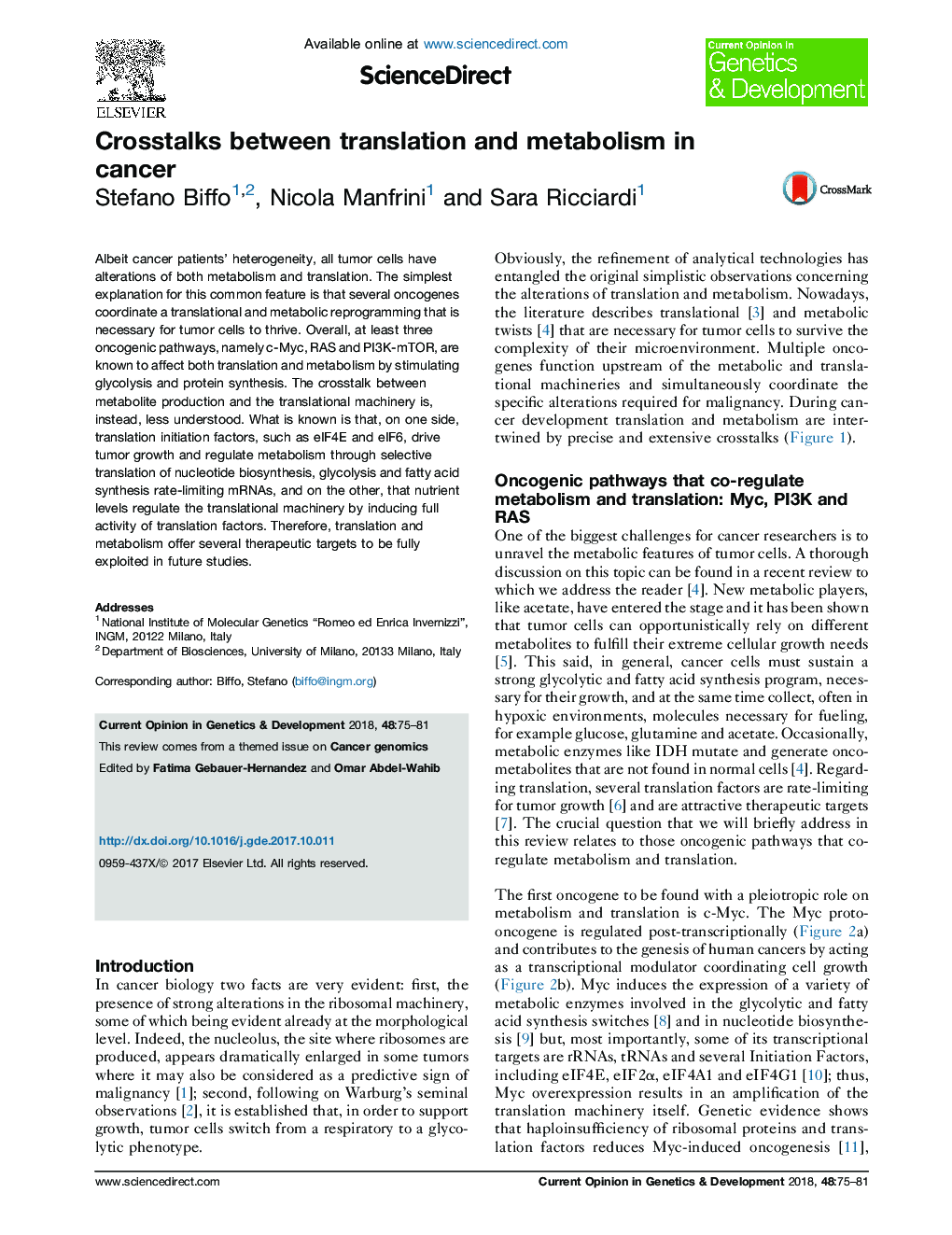| Article ID | Journal | Published Year | Pages | File Type |
|---|---|---|---|---|
| 8625940 | Current Opinion in Genetics & Development | 2018 | 7 Pages |
Abstract
Albeit cancer patients' heterogeneity, all tumor cells have alterations of both metabolism and translation. The simplest explanation for this common feature is that several oncogenes coordinate a translational and metabolic reprogramming that is necessary for tumor cells to thrive. Overall, at least three oncogenic pathways, namely c-Myc, RAS and PI3K-mTOR, are known to affect both translation and metabolism by stimulating glycolysis and protein synthesis. The crosstalk between metabolite production and the translational machinery is, instead, less understood. What is known is that, on one side, translation initiation factors, such as eIF4E and eIF6, drive tumor growth and regulate metabolism through selective translation of nucleotide biosynthesis, glycolysis and fatty acid synthesis rate-limiting mRNAs, and on the other, that nutrient levels regulate the translational machinery by inducing full activity of translation factors. Therefore, translation and metabolism offer several therapeutic targets to be fully exploited in future studies.
Related Topics
Life Sciences
Biochemistry, Genetics and Molecular Biology
Developmental Biology
Authors
Stefano Biffo, Nicola Manfrini, Sara Ricciardi,
